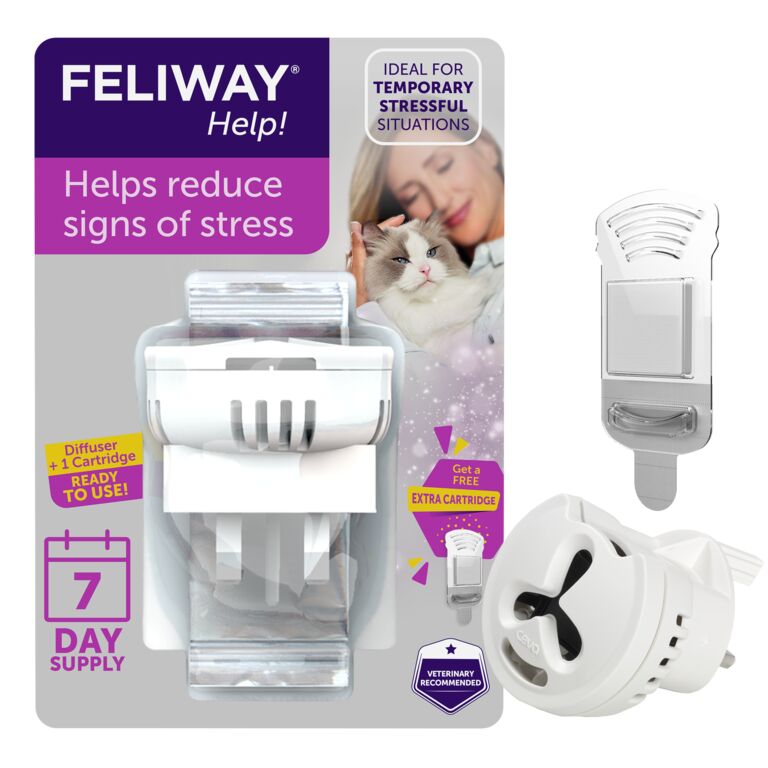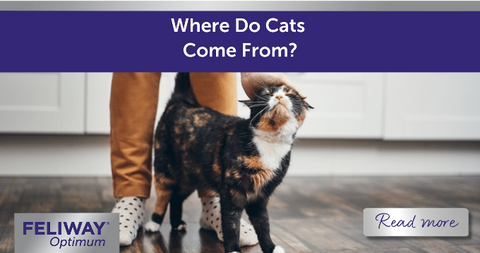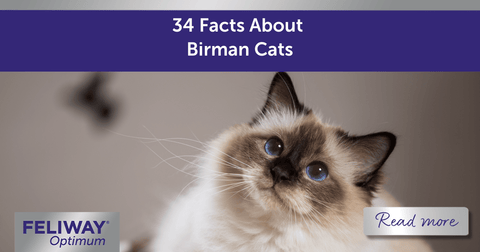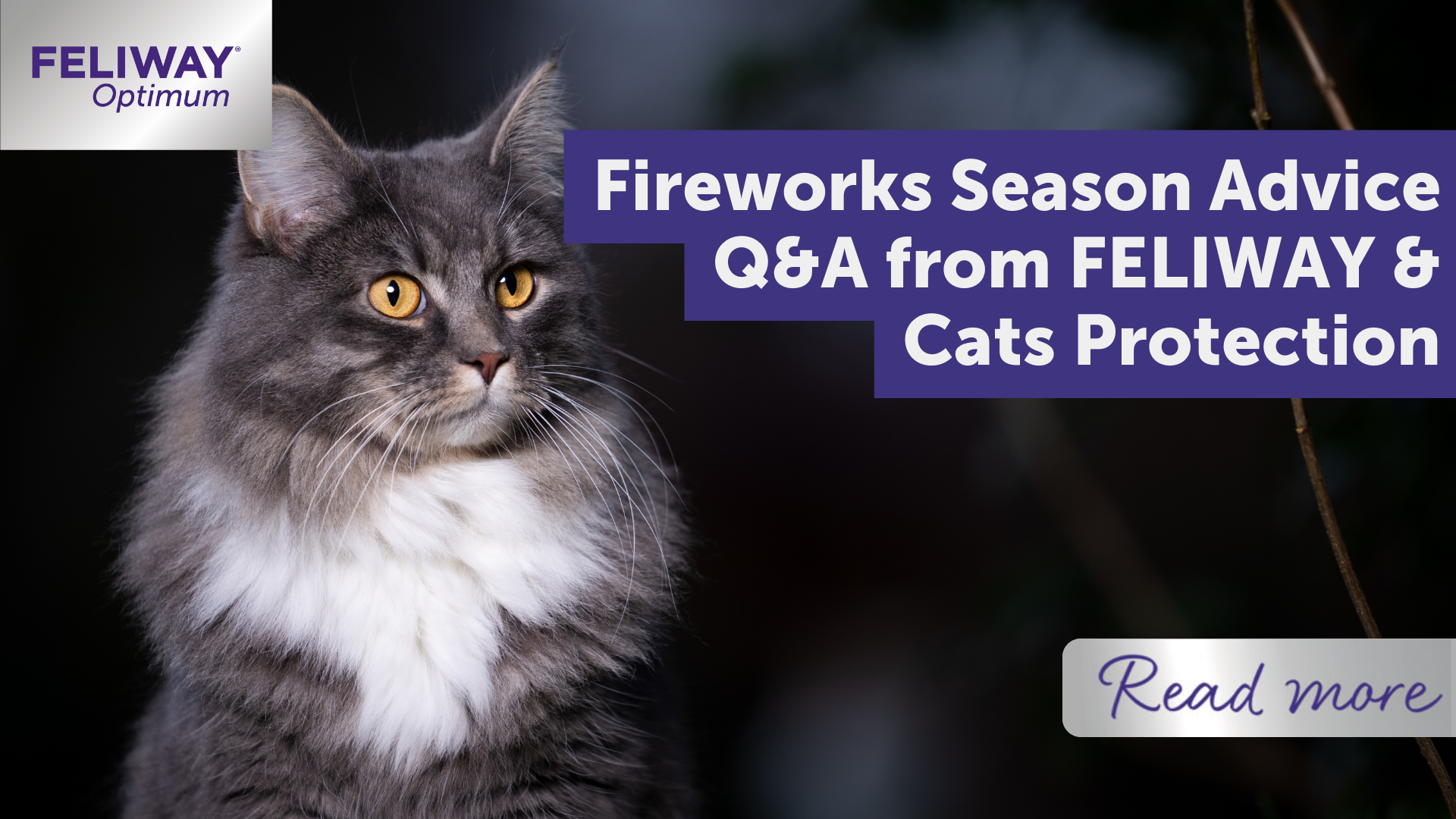
Fireworks Season Advice Q&A from FELIWAY & Cats Protection
As we move into Winter, some people may still be wary of large gatherings so we could possibly see a rise in garden firework displays at homes across the UK. FELIWAY® have collaborated with the UK's leading feline welfare charity Cats Protection to provide cat parents with the latest advice this fireworks season.
Nicky Trevorrow BSc (Hons), PG Dip (CABC), RVN, Behaviour Manager at Cats Protection provides valuable and insightful information on how to keep cats calm during fireworks season.
1. Why are fireworks frightening for cats?
It's easy to forget just how amazing a cat's hearing is compared to ours, so loud bangs can be very overwhelming for them. Cats have no idea what fireworks are and, therefore, combined with the seemingly unpredictable nature of fireworks, it's not surprising that a loud, unpredictable, unknown noise is very threatening and scary for them. As well as being a small predator, cats are also a prey species so need to be alert to signs of danger to keep themselves safe. If outside, then cats would find the sudden light displays from fireworks frightening too.
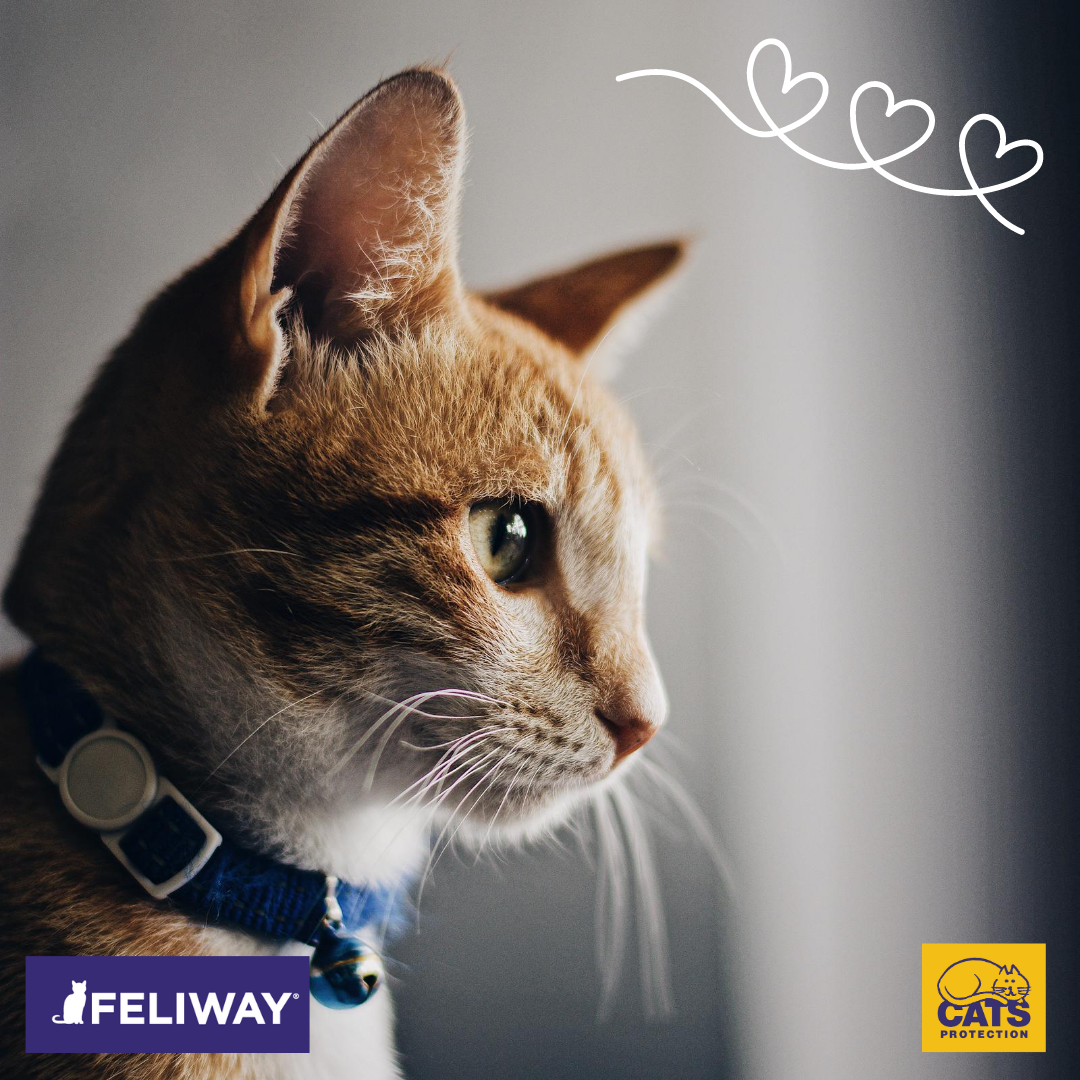
2. How can cat parents prepare their cat for firework season?
The very best thing to do is to socialise young kittens in the first two months of life to the sounds of fireworks using the FREE Cats Protection socialisation sounds. Introducing the sounds gradually, played briefly at a very low level so that the kitten isn't anxious, can help to set them up for life. Given the huge positive impact this has on cat welfare, kitten socialisation is an important responsibility for anyone raising young kittens.
For those with adult cats who are already fearful of fireworks, we would recommend getting a referral from your vet to a qualified behaviourist from the Animal Behaviour and Training Council. A behaviourist will be able to develop a gradual desensitisation programme tailored to the individual cat. This can take months so it's best to start with plenty of time before fireworks season. We owe it to our cats to do the best we can to reduce their fear and anxiety.
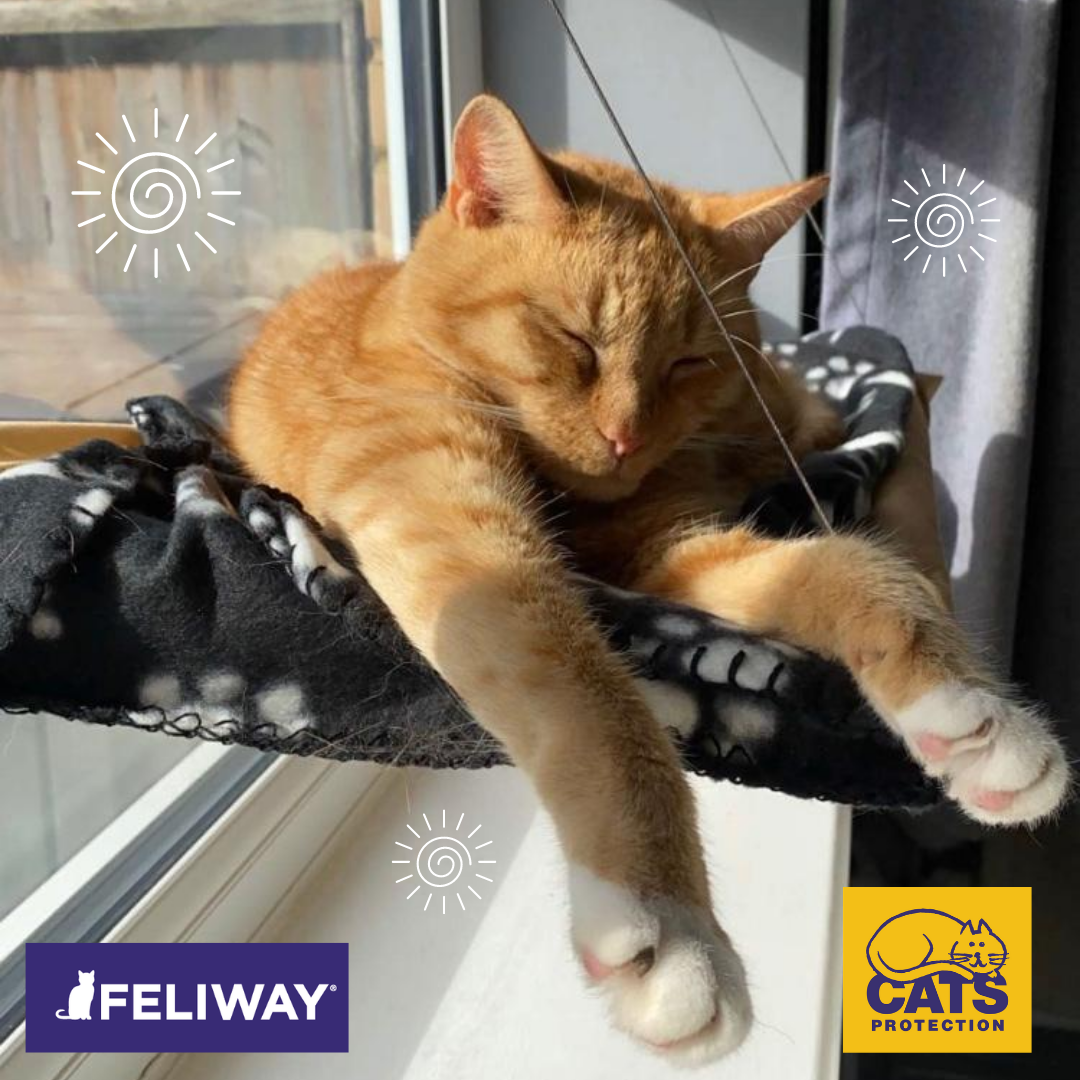
3. How would a cat parent know if their cat is afraid of fireworks?
While cats are naturally much harder to read than dogs as they haven't evolved the facial muscles to show a wide variety of expressions, there are subtle signs to look for. When looking at the cat's facial expression, particularly concentrate on:
- whether the pupils are large/dilated,
- if the cat's ears are turned out to the side or back. (Cats that are tense will dart their ears around listening to the various sounds around them.)
If these signs are present when a cat licks their nose, swallows (when not eating) or yawns, then this could indicate that the cat is feeling stressed. When feeling fearful, cats are more likely to crouch so they are ready to run rather than lying down.
The most common response to fireworks in fearful or anxious cats is to run away, hide and/or climb to a safe lookout.
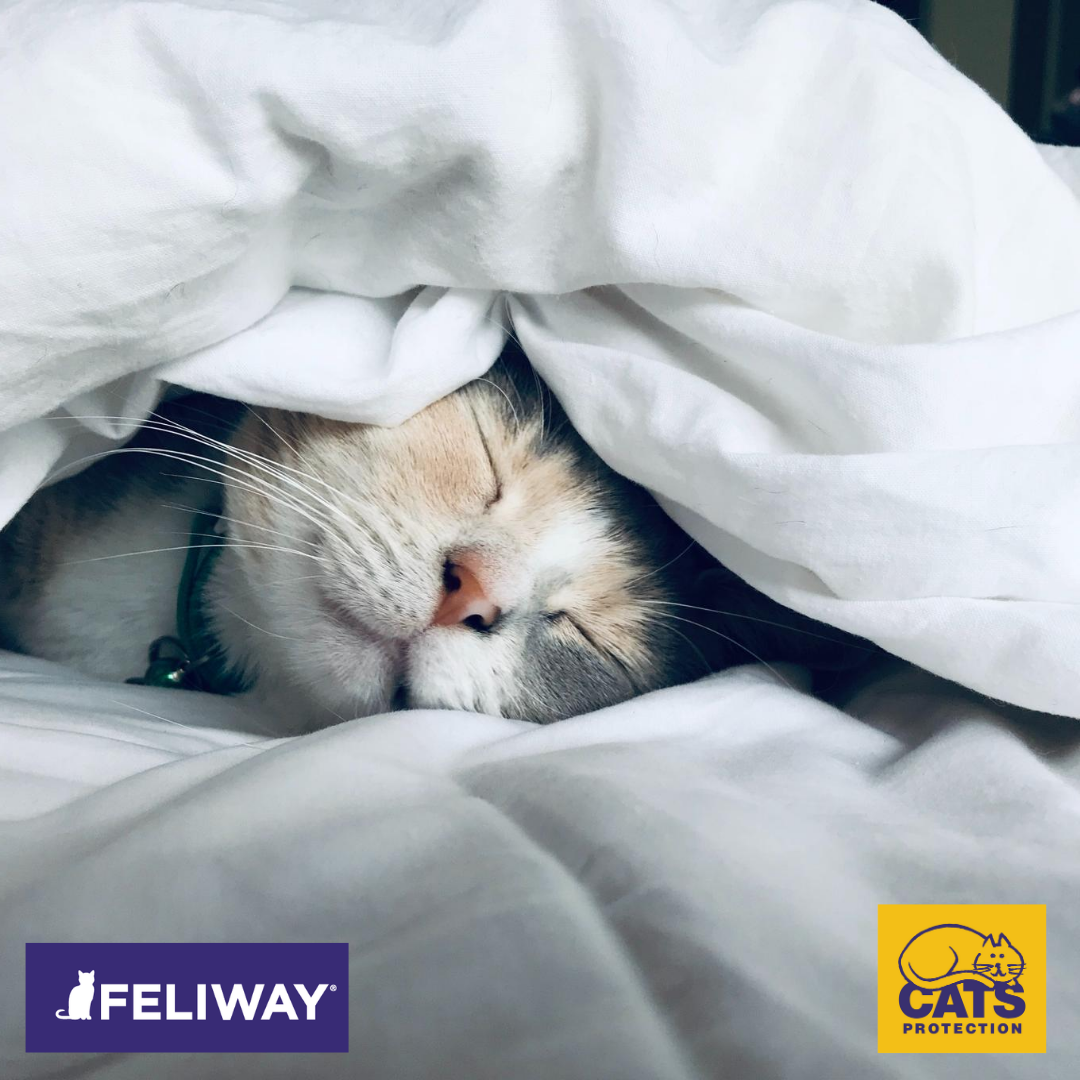
4. What does Cats Protection recommend to help keep cats safe and calm during firework season?
During fireworks season, there are extra steps we can take to make our cats feel safe and secure. Firstly, it's important that cats are microchipped and that microchip details are kept up to date, just in case the cat gets spooked and runs away. Coupled with this, it's good welfare to ensure that your cat is neutered and vaccinated.
At home, get your cat used to coming indoors for their dinnertime so they can be safely locked inside from dusk onwards. This helps to encourage a predictable and consistent routine (which of course cats thrive on) and develop a recall so cats come when called or to the sound of the food. It'll provide you with peace of mind, knowing that they are safe. Once indoors, shut the curtains, lock doors, windows and cat flaps, and play the TV or radio on a quiet level to provide a background noise to mask the fireworks.
All cats benefit from having lots of resources, such as food and water bowls, beds, scratch posts etc, in appropriate places spaced out from each other and all around the home. Don't forget that even if your cat normally toilets outside, they'll need to be provided with a litter tray over the fireworks season as they are shut indoors at night. You may even want to set up a quiet sanctuary room for your cat to retreat to, which contains all their important resources, and is away from other potential stressors such as children or other pets. Conversely, if your cat is well bonded to you, then they may seek you out for comfort so feel free to offer some fuss and reassurance, depending on the individual cat's needs.
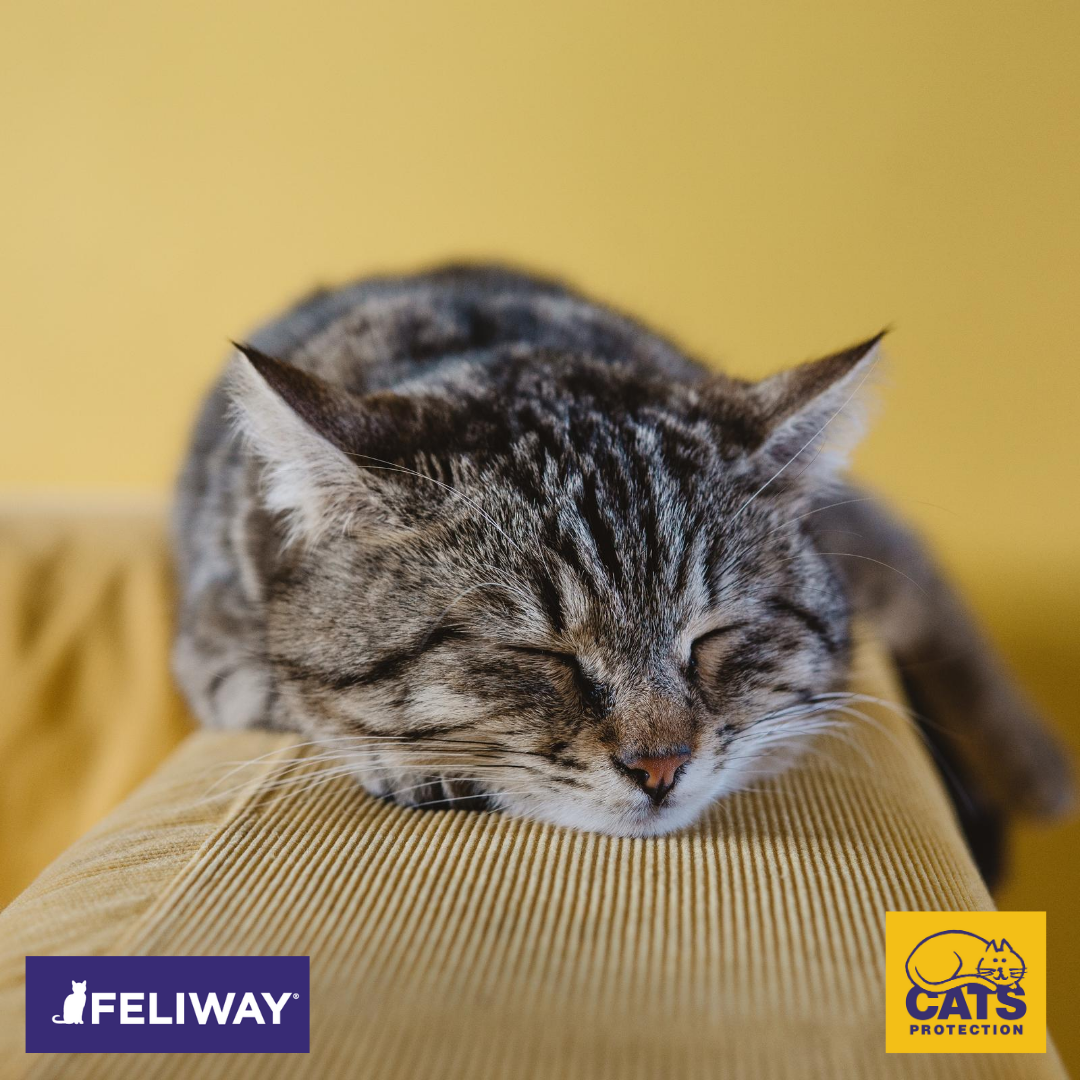
5. What final preparations would Cats Protection suggest to make sure cats and their owners are prepared this firework season?
Cats Protection is a huge fan of providing lots of hiding places so stock up on cardboard boxes! Ensure that cats have plenty of bolt holes as well as elevated perches. These are the natural coping mechanisms that have been proven to help cats feel calm and safe. Older cats may need help in reaching these areas so providing a small step or stool can help them with accessibility. Cats are so good as masking pain and discomfort that it is not easy to notice if cats are becoming stiff and arthritic. And finally, don't forget to get FELIWAY diffusers plugged in near to where your cat normally sleeps, leave on continuously and for at least a week in advance for maximum benefit.
For more advice on how to keep your cat calm during fireworks season take a look at our expert blogs or visit Cats Protection.













